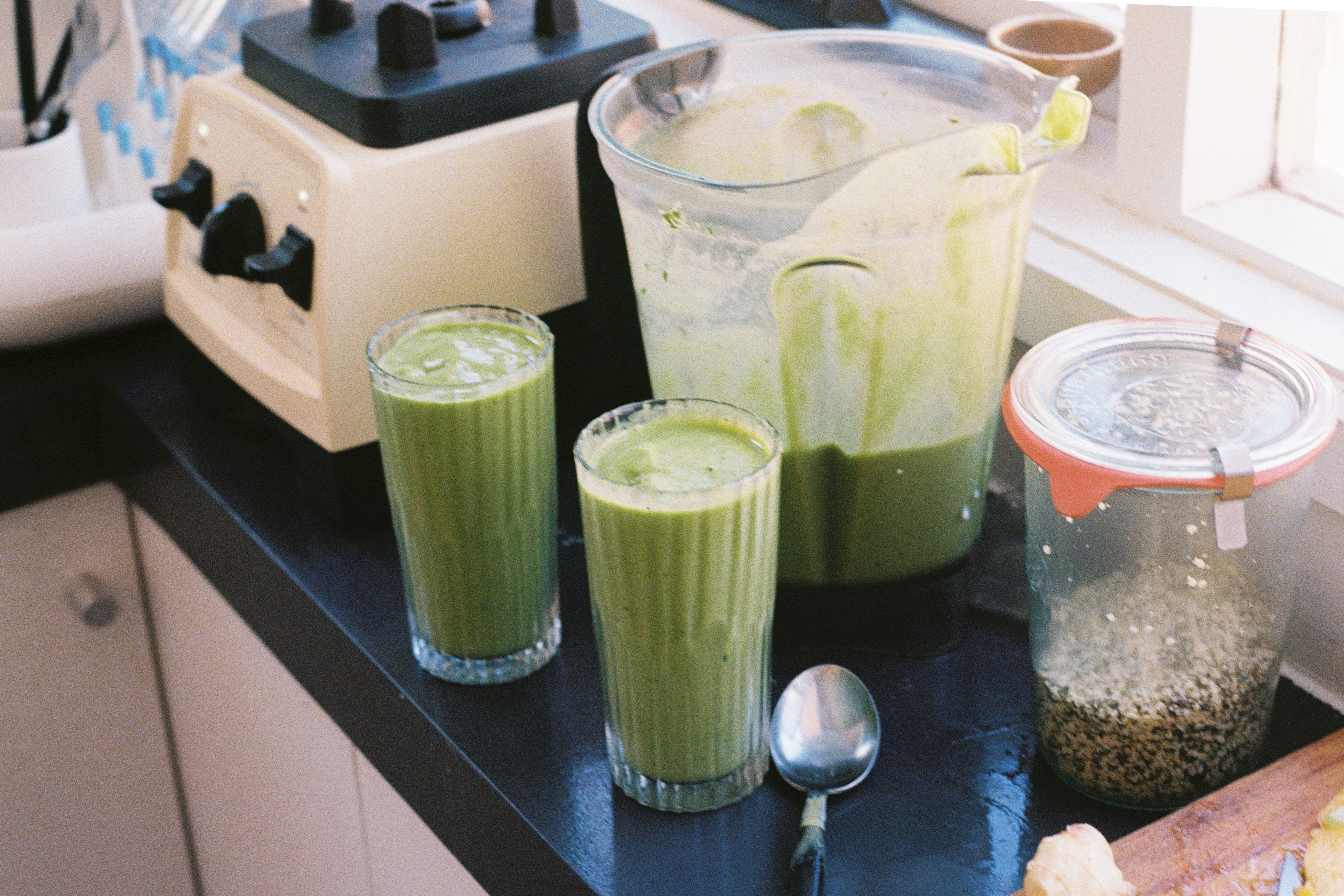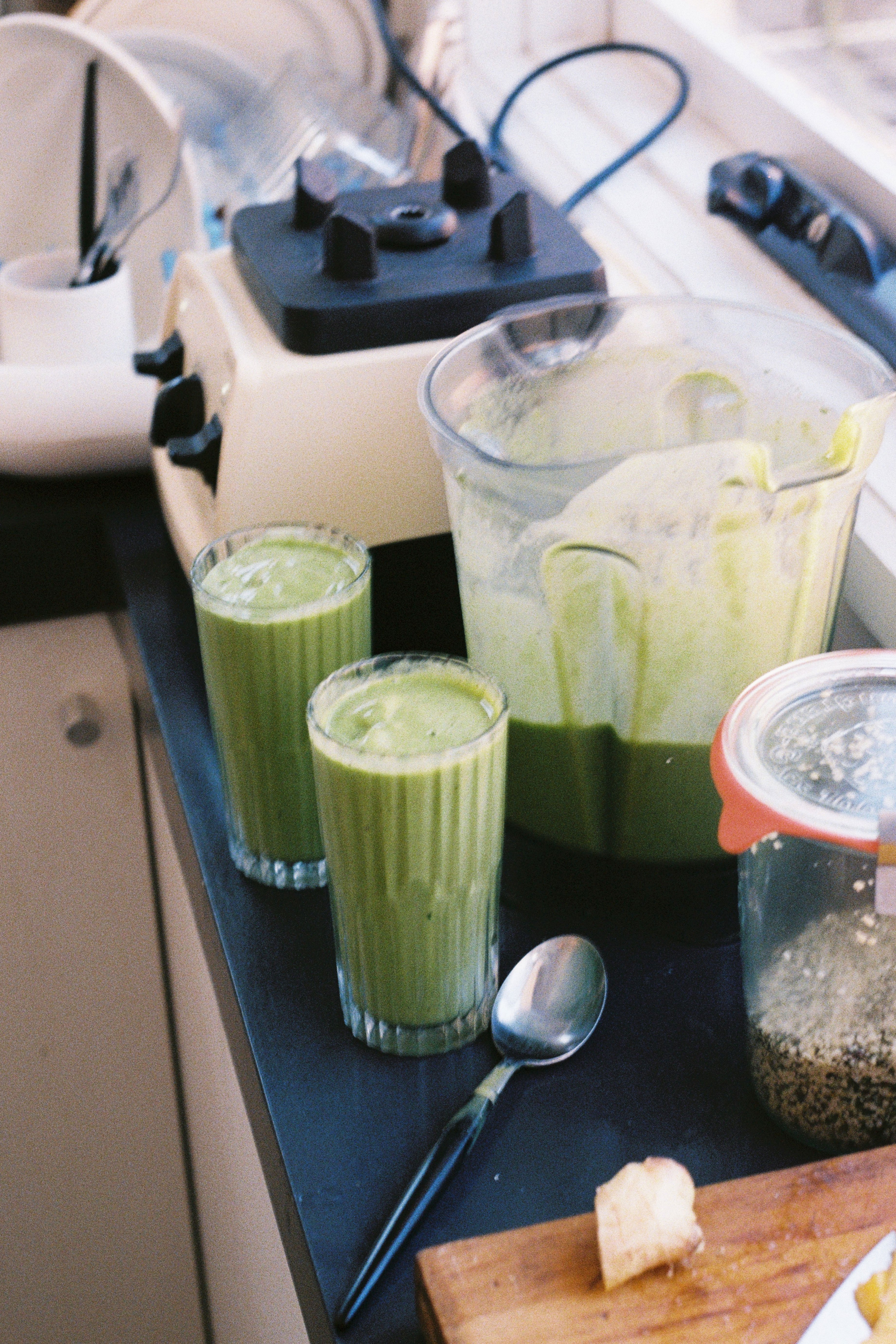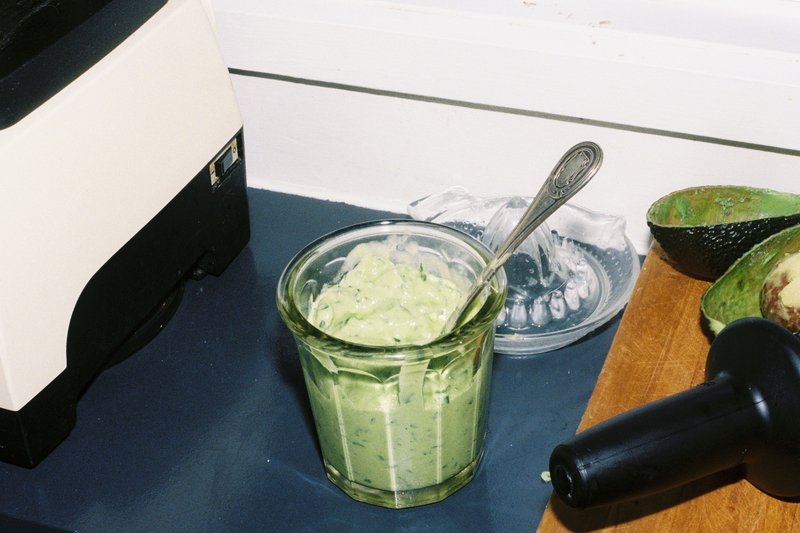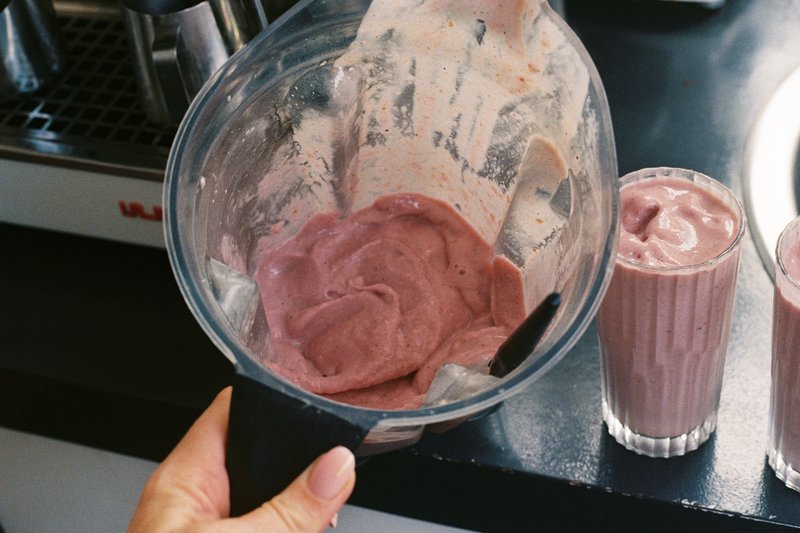This green smoothie exceeds delicious, thick and creamy, because - coconut ice cubes.
I don’t usually have frozen coconut milk cubes on hand but at the time of preparing this green smoothie, I had a half can of coconut milk left over from a curry that we had photographed for our ebook several days prior that was begging to be saved. I recall while I was working at Ceres Organics people had mentioned they often had leftover coconut milk from a 400 ml can and did not know what to do with it, well, this is what you do with it. You freeze your coconut milk in an ice cube tray and make super creamy fat metabolising smoothies with it. Potentially.
I rarely buy canned coconut milk now. There was a time where I was making raw desserts quite often for work, but it got tired, I think even Pinterest got tired of it. It’s not for everyone, the ingredients require a certain level of investment, of access. I bake banana cakes now. And so, there are no half cans of coconut milk hanging out in my fridge anymore, but when coconuts are in abundance at the markets, I will make my own. It was Benoit, Amandine’s partner who thought to make coconut milk from scratch after spotting mature coconuts at Garden For The People one weekend. Turns out you can make around 1 litre per coconut, depending on the consistency. And since we were picking up coconuts for around $3 this ended up being far more cost effective than purchasing cans, and it is a better product than a carton version, plus it is zero waste. Wins abound.
And back to the fat metabolising part. Coconut contains medium-chain triglycerides which stimulate energy through a process called thermogenesis, or heat production. There is some research to suggest that coconut consumption supports weight loss, however, this is going to completely depend on you and your genetics and unique biology. Coconut does, however, make this green smoothie energising and nourishing. I like my smoothies super thick and usually use a banana per serve though I understand some people are watching their carbohydrate intake, and you do what feels right for you. Coconut cubes provide a creaminess much like banana so there really is no compromise here. Or you use an extra frozen banana.
Hemp seeds are also creamy. If you are not familiar, hemp seeds are the seeds of the hemp plant, Cannabis Sativa, from the same species as cannabis (marijuana) a different variety, they contain no THC, the psychoactive compound in marijuana that gets you high. Hemp seeds are safe to eat, the trans-Tasman Ministers government confirmed this on 28 April 2017 approving changes to the Australia New Zealand Food Standards Code that would allow the sale of hemp seed as a food for human consumption. Amendments were made to the Misuse of Drugs (Industrial Hemp) Regulations 2006 and the Food Regulations 2015 that would “provide for consistency between the Food Standards Code to allow low-tetrahydrocannabinol (THC) hemp seed as food.” And that is all sorts of wonderful if you are wanting to incorporate other vegan protein sources into your diet given we have been denied hemp for decades.







